 After more than 20 years in the field of dentistry, Michelle Noblet-Vacha, RDH, BS, decided to take a risk and start her own company, Senior Mobile Dental—now Community Dental Health—in 2006. Based in Colorado Springs and Pueblo, Colorado, the nonprofit organization serves low-income individuals within the community and vulnerable older adults residing in nursing care facilities who can no longer access professional oral health care services. Her innovative on-site provision of dental care (not working out of a mobile dental clinic) focuses on addressing the disparities older people face in receiving dental care. Noblet-Vacha has also successfully implemented teledentistry into her organization’s work. Community Dental Health is funded through a variety of grants, community support, and Medicaid benefits, and employs four dentists, four dental hygienists, and a support staff.
After more than 20 years in the field of dentistry, Michelle Noblet-Vacha, RDH, BS, decided to take a risk and start her own company, Senior Mobile Dental—now Community Dental Health—in 2006. Based in Colorado Springs and Pueblo, Colorado, the nonprofit organization serves low-income individuals within the community and vulnerable older adults residing in nursing care facilities who can no longer access professional oral health care services. Her innovative on-site provision of dental care (not working out of a mobile dental clinic) focuses on addressing the disparities older people face in receiving dental care. Noblet-Vacha has also successfully implemented teledentistry into her organization’s work. Community Dental Health is funded through a variety of grants, community support, and Medicaid benefits, and employs four dentists, four dental hygienists, and a support staff.
Noblet-Vacha is also passionate about addressing the disconnect between medical and dental health care. In March 2019, she served as a lead panelist on oral health implementation for the Healthier Rural West Summit, which focuses on finding solutions to delivering better health, better care, lower cost, and satisfaction to rural populations.
As she has made a tremendous difference in helping Colorado’s most vulnerable residents receive desperately needed oral health care, Noblet-Vacha has received a plethora of awards. Most recently, she was named a 2019 Dentaquest Health Equity Hero and, in 2018, received the Edison Award for Social Innovation.
You started your own company to better serve those with little access to care. How did you make this happen and what have the results been?
I chose to found Community Dental Health as a nonprofit organization to overcome two main barriers to care: access and cost. Older adults living in nursing facilities were my initial target population. Many had a history of receiving high-quality dental care, yet once they moved into a facility, residents barely had their teeth brushed on a daily basis. While in private practice, I saw how difficult it was for older adults to come to the office. Why not bring my professional skills directly to them, where they lived? I developed my program to provide in-house care rather than operating out of a bus or motor home. As my nursing home program grew, so did the attention regarding the need for oral health among older adults and veterans living within the community. Veterans became a target population when I realized many were not eligible to receive dental care through the VA. The stories of these hardy men and women having to pull their own teeth with fishing line or needle-nose pliers were crazy. Even more tragic were veterans who were able to have their teeth extracted, but never received dentures.
Due to various circumstances, many aging adults are in advanced disease and neglect because they cannot afford dental care. When I saw pictures of older adults with serious, treatable oral diseases—many caused by medication regimens—I knew I had to do something about it.
I applied for state funding and, with those funds, began my dental program that provided preventive as well as restorative care. I now have two office locations with two full dental teams including dentists, dental hygienists, denture technicians, and support staff. This year we have provided over $1.5 million worth of care!
As a lead panelist at the Healthier Rural West Summit, what issues related to oral health do you see as particular to rural populations?
This summit was to discuss the lack of access to care for rural communities. It was primarily a medical-based meeting, but I was proud to be asked to lead a panel for dental needs. I am passionate about the disconnect between the medical and dental fields, and was so excited that dental was finally being recognized. It was disheartening that very few attended our session. I presented one challenge to all of the attendees: to include the following question on all medical history forms, “When was your last complete dental exam or cleaning?” Answers to just that one question could shed light on a variety of health issues, such as difficulty with chronic disease management (eg uncontrolled diabetes, preterm pregnancies, cardiovascular disease). This one question could lead to a dental referral and eventual collaborative care.
Rural populations face a lack of oral health care providers. I implemented the teledentistry concept, and teledentistry is a gateway to initiate dental care. Our teledentistry concept helps facilitate and streamline much-needed dental care.
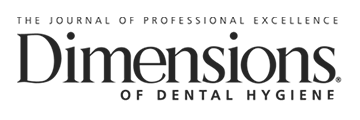
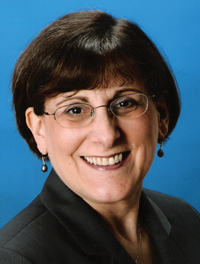
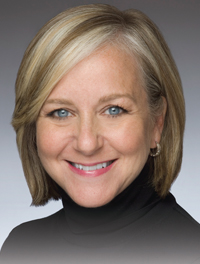
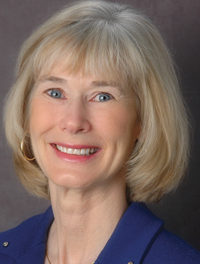
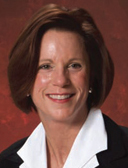
HI Michelle Noblet- Vacha,
My name is Cindy Lin and I am a dental hygienist in New York. After working for 5 years in clinical hygiene I always hoped I can also further my education and opportunities in providing care for under-served communities. I also had the idea of wanting to start a company with another person to provide care for children. I was reading your biography and it intrigues me to be able to have the opportunity to do more than just be a clinical hygienist. Do you find running a company on your own challenging at times? Are there additional courses and guidelines that are required to be able to open your own company?